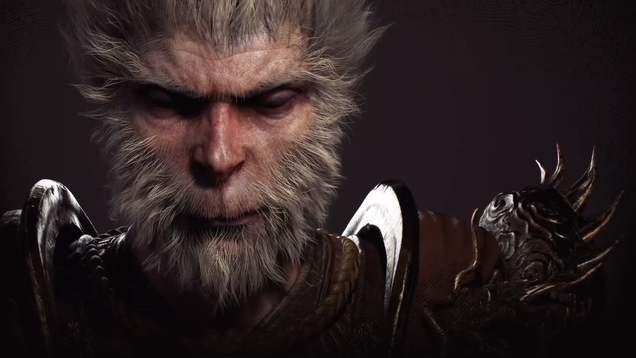Search results
- Best Life Editors
- editors@bestlifeonline.com
- Bulls get angry when they see the color red. You're hardly alone if you believe that when matadors wave those red capes to make bulls charge at them, it's the bright color that incites their anger.
- Goldfish only have a three-second memory. Goldfish have a reputation of having bad memories. But it turns out that the idea that these orange aquatic creatures can only remember things for three seconds is a myth.
- We only use 10 percent of our brains. Many people believe that humans only use 10 percent of their brains; it's even the plot line for the 2014 film Lucy, starring Scarlett Johansson.
- George Washington had wooden teeth. It turns out our nation's first president wasn't rocking a pair of wooden chompers. The historians at the Washington Library say that while George Washington did suffer from dental problems, his dentures were composed of ivory, gold, lead, and even other human teeth—but never any wood.
News about Black Myth: Wukong, DLC, Spells
News about Donald Trump, Alex Wagner, business success
Also in the news
- Overview
- The nature, functions, and types of myth
- GeneratedCaptionsTabForHeroSec
myth, a symbolic narrative, usually of unknown origin and at least partly traditional, that ostensibly relates actual events and that is especially associated with religious belief. It is distinguished from symbolic behaviour (cult, ritual) and symbolic places or objects (temples, icons). Myths are specific accounts of gods or superhuman beings involved in extraordinary events or circumstances in a time that is unspecified but which is understood as existing apart from ordinary human experience. The term mythology denotes both the study of myth and the body of myths belonging to a particular religious tradition.
As with all religious symbolism, there is no attempt to justify mythic narratives or even to render them plausible. Every myth presents itself as an authoritative, factual account, no matter how much the narrated events are at variance with natural law or ordinary experience. By extension from this primary religious meaning, the word myth may also be used more loosely to refer to an ideological belief when that belief is the object of a quasi-religious faith; an example would be the Marxist eschatological myth of the withering away of the state.
While the outline of myths from a past period or from a society other than one’s own can usually be seen quite clearly, to recognize the myths that are dominant in one’s own time and society is always difficult. This is hardly surprising, because a myth has its authority not by proving itself but by presenting itself. In this sense the authority of a myth indeed “goes without saying,” and the myth can be outlined in detail only when its authority is no longer unquestioned but has been rejected or overcome in some manner by another, more comprehensive myth.
The word myth derives from the Greek mythos, which has a range of meanings from “word,” through “saying” and “story,” to “fiction”; the unquestioned validity of mythos can be contrasted with logos, the word whose validity or truth can be argued and demonstrated. Because myths narrate fantastic events with no attempt at proof, it is sometimes assumed that they are simply stories with no factual basis, and the word has become a synonym for falsehood or, at best, misconception. In the study of religion, however, it is important to distinguish between myths and stories that are merely untrue.
Myth has existed in every society. Indeed, it would seem to be a basic constituent of human culture. Because the variety is so great, it is difficult to generalize about the nature of myths. But it is clear that in their general characteristics and in their details a people’s myths reflect, express, and explore the people’s self-image. The study of myth is thus of central importance in the study both of individual societies and of human culture as a whole.
Students save 67%! Learn more about our special academic rate today.
Learn about the nature, functions, and types of myths, the symbolic narratives that relate actual events and are associated with religious belief. Explore the mythologies of different cultures and the role of animals and plants in myth.
- The myth of the Great Flood. The Hebrew Bible and Christian Old Testament contain the story of Noah, the Ark, and the survival of humanity and the animal kingdom from the Great Flood.
- Romulus, Remus, and the founding of Rome. The image of a she-wolf suckling human infants, twin boys, remains a symbol of the City of Rome in the 21 century.
- The Trojan Horse and the conquest of Troy. The myth of the Trojan Horse, in which Greek troops hid in order to deceive and eventually conquer the Trojans, may well be based in fact, at least partially.
- The Divine Wind which destroyed Mongol invasions of Japan. In the late 13 century, two separate invasions of Japan by massive Mongol fleets and armies found themselves thwarted.
Learn about myth, a genre of folklore that plays a fundamental role in a society, often involving supernatural beings or events. Explore the etymology, structure, and classification of myths, as well as their relationship with religion, culture, and history.
- The Tortoise and the Hare: A tortoise, tired of the hare’s boasting, challenges him to a race. The hare, confident of winning, takes a nap mid-race, while the tortoise perseveres and wins.
- Pandora’s Box: In Greek mythology, Pandora, the first woman on earth, was given a box by Zeus, but was instructed never to open it (Rose, 2010). Overcome by curiosity, Pandora finally opened the box, inadvertently releasing all manner of evils, diseases, and pain into the world.
- The Journey of Odysseus: Homer’s epic, ‘The Odyssey’, narrates the 10-year journey of the Greek hero Odysseus as he strives to return home after the Trojan War.
- Icarus and Daedalus: This myth tells the tragic tale of Icarus and his father Daedalus, trapped in King Minos’ labyrinth. Daedalus devised wings made of wax and feathers in order for them to escape, but advised Icarus not to fly too close to the sun.
Mythopedia is a comprehensive online resource for exploring ancient mythology from various civilizations, such as Greek, Roman, Celtic, Norse, Egyptian and more. You can discover the gods, goddesses, myths, legends, cosmology, creatures, and name generators of different pantheons and domains.
May 10, 2024 · Explore the stories and themes of various mythologies from different cultures and time periods. Learn about Greek, Norse, Egyptian, Celtic, and more myths with examples and links to related articles.





